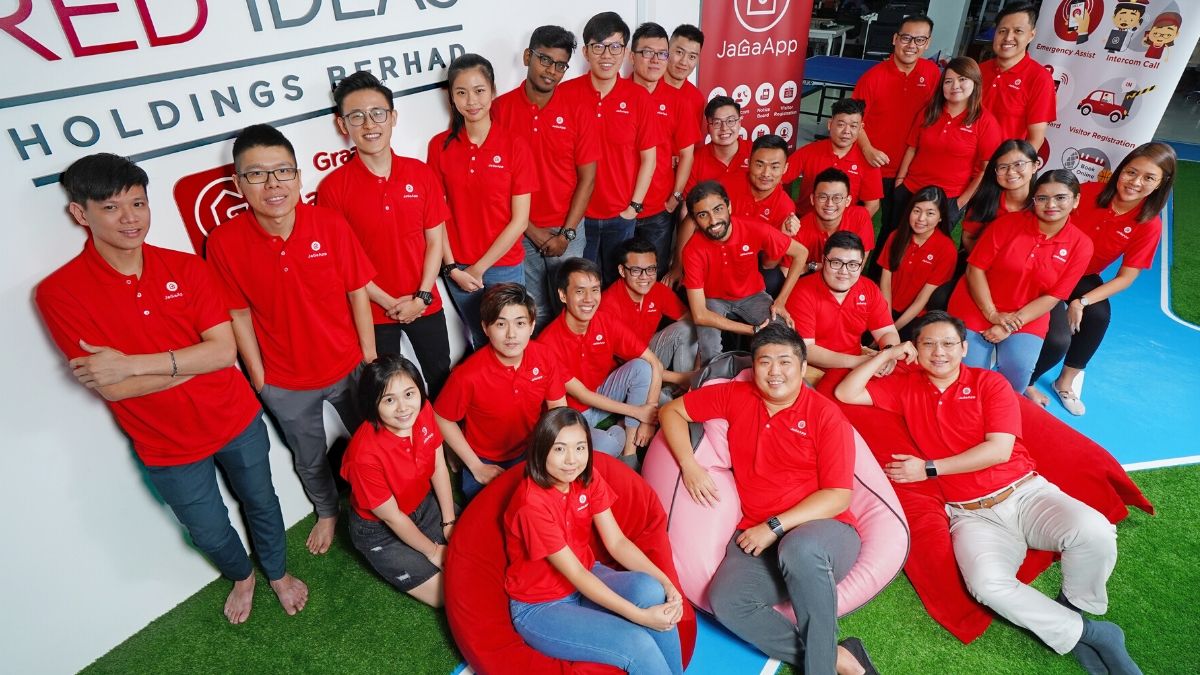These sorts of issues, discussed over a regular meetup over mamak food and drinks, got the gears of ex-colleagues David and Ignatius turning. They’d experienced or seen these in their own neighborhoods, after all.
“It got us thinking, there must be a better way for improving communication, convenience and security in the neighborhood,” David explained. “We felt that it is our calling to do something about it, so we started JaGaApp.”
“When we first started the app, the main challenge was educating our customers and the public in general about the need for a system,” said Ignatius.
“We were lucky to find that the market in general was crying out for one singular platform that will enable the management of a building or neighborhood well.”
Covering All Bases
JaGaApp is their flagship product and a mobile app designed to enhance communications between the residents, management offices, and security guards—the 3 main groups of people who comprise a neighborhood.
It’s equipped with features such as Emergency Assist, Intercom Call, Facility Booking, Bill Payment, and more.
Despite not being the only neighborhood community and security app on the market, David said, “We pride ourselves in the focus we have towards our business, unlike our competition who entered the community app space from either hardware, accounting or IT-based businesses to simply complement their existing business.”
He’s also proud of the ability of their system to cope with the many customer demands, especially when they have to cater to a variety of neighborhoods with different circumstances and SOPs.
“To build JaGaApp to be able to cater to every eventuality without needing to resort to ‘re-coding’ for each and every site shows a maturity in the system,” he added.
In order for JaGaApp to be used effectively, all residents of the neighborhood are required to sign up.
If there are people within the community who neglect doing so, the effectiveness of the app would be diminished as its system wouldn’t have all the necessary data.
Everyone has to sign up
“Let me give you an example,” Ignatius explained. “If a resident does not sign-up, when his/her visitor arrives at the guard house, the guards on duty will not have a resident to call to verify the legitimacy of the said visitor.”
“In this instance, the SOP for the guards is to deny all visitors to that unregistered unit.”
JaGaApp charges a monthly subscription fee based on how many control points (guardhouses) there are in a neighborhood, at a cost of MYR 600/month per control point.
The cost is borne by the neighborhood’s owners association, whether it’s a Joint Management Body, Management Corporation, or Resident Association.
Emblazoned in red, the JaGaApp website proudly announces the number of neighborhoods who’ve come to use their services (over 400 in Malaysia).
“We have a healthy mix of all sorts of neighborhoods,” Ignatius told us. “In terms of level of affluence, we have a good mix of high-end, mid and lower-end properties.”
Saving lives and discovering “perpetrators”
As they serve quite a number of communities, they had to have some interesting stories to share about how JaGaApp has been used, which we asked them to share.
Ignatius obliged and told us, “There was a case in a neighborhood where a resident activated the Emergency Assist function as he heard a loud commotion and suspected a case of domestic violence in a unit nearby.”
“Guards were dispatched immediately to find that, true enough, it was as suspected but unlike conventional expectations, it was the girlfriend of the tenant that was found to be attacking her boyfriend with a knife.”
Another case Ignatius shared with us was how the Facility Booking feature was able to trace the perpetrator in a rather odd and surprising case.
A group of residents who wanted to play badminton hadn’t been able to book the courts on Tuesdays at 8PM for 5 weeks straight.
Thus, they accused the management office of accepting bribes from another group and carried out an investigation.
Surprisingly, they discovered that it was actually because a member of another badminton-playing group would purposely stay up and book the slot in a “record time of 15 seconds”.
Even more surprising was that doing as such was actually still in full accordance with the house rules.
Plans For The Future
This month, they’ll be launching JaGaApp 2.0 which will be open for public download, meaning that members of the public can use the app when visiting JaGaApp neighborhoods.
Alongside that, there’s also a new feature called JaGaID that takes inspiration from the verification process in e-wallets.
“JaGaID will play a big part in reducing the registration waiting time at guardhouses, as verified JaGaID users are no longer required to present their photo ID,” Ignatius explained.
“We have always believed that the most important thing in business is to provide true value to our customers.”
